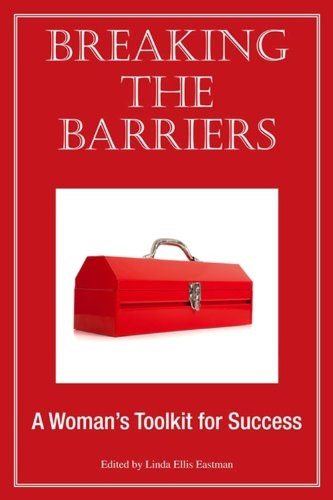Project Description

Breaking The Barriers
Dr. Kym is one of several contributing authors to Breaking The Barriers. She shares her insights and perspective in Chapter 11.
Chapter 11 : The Gift of Feedback – A Strategy for Success (An Excerpt)
I can remember the first time my manager introduced me to the concept of feedback. She used these words, “Feedback is a gift.” My response was something like “yeah, right…” The thought of getting feedback from my boss, co-workers, and colleagues actually made me feel quite vulnerable. I remember thinking, “These people don’t know me; how can they possibly provide me with feedback.” Well, the first truth is that whether we want to hear it or not, people have thoughts and opinions about us in the same way that we do about them.
The second truth is that if we have aspirations of career advancement in any organization we must gain a greater awareness 140 Breaking the Barriers about the perceptions of others. Not knowing actually makes us more vulnerable and creates an avoidable obstacle to advancement. When it is honest, specific, and constructive, feedback becomes a tool that can quantum leap your career forward.
So what is feedback, really?
Feedback is information that provides the self-awareness essential for professional and personal growth. It helps maximize potential, raise awareness of strengths, and identify blind spots and areas for improvement. When we ask the right questions, feedback can also proactively inform future behavior and performance. Research in the area of emotional intelligence suggests that eighty-three percent of high performers are also high in self-awareness and only two percent of low performers are high in self-awareness. These numbers create a strong case for utilizing feedback as a component of one’s career management strategy.
As an executive coach, my clients engage me to address career challenges, the absence of professional growth, and issues related to undesirable detours in their career trajectory. For a variety of reasons, they will make a personal financial investment in the coaching relationship rather than utilizing the resources available through their organizations. Imagine their surprise when after we identify their challenges, and crystalize their desired outcomes I introduce the next step, which is to gather feedback. I often refer to this as “outing them” because they come to me with hopes of addressing their issues on the down low. While I know that it is not their intention to provide a biased view of their circumstances, the reality is that an individual’s view of a situation is her personal perspective. There is often more to the story. Being an active participant in a situation does not provide a 360-degree view. Without the perspective of others, we can miss the real issues. I would do my clients a disservice to assume that their view of the situation is the gospel, when it is simply their truth.

